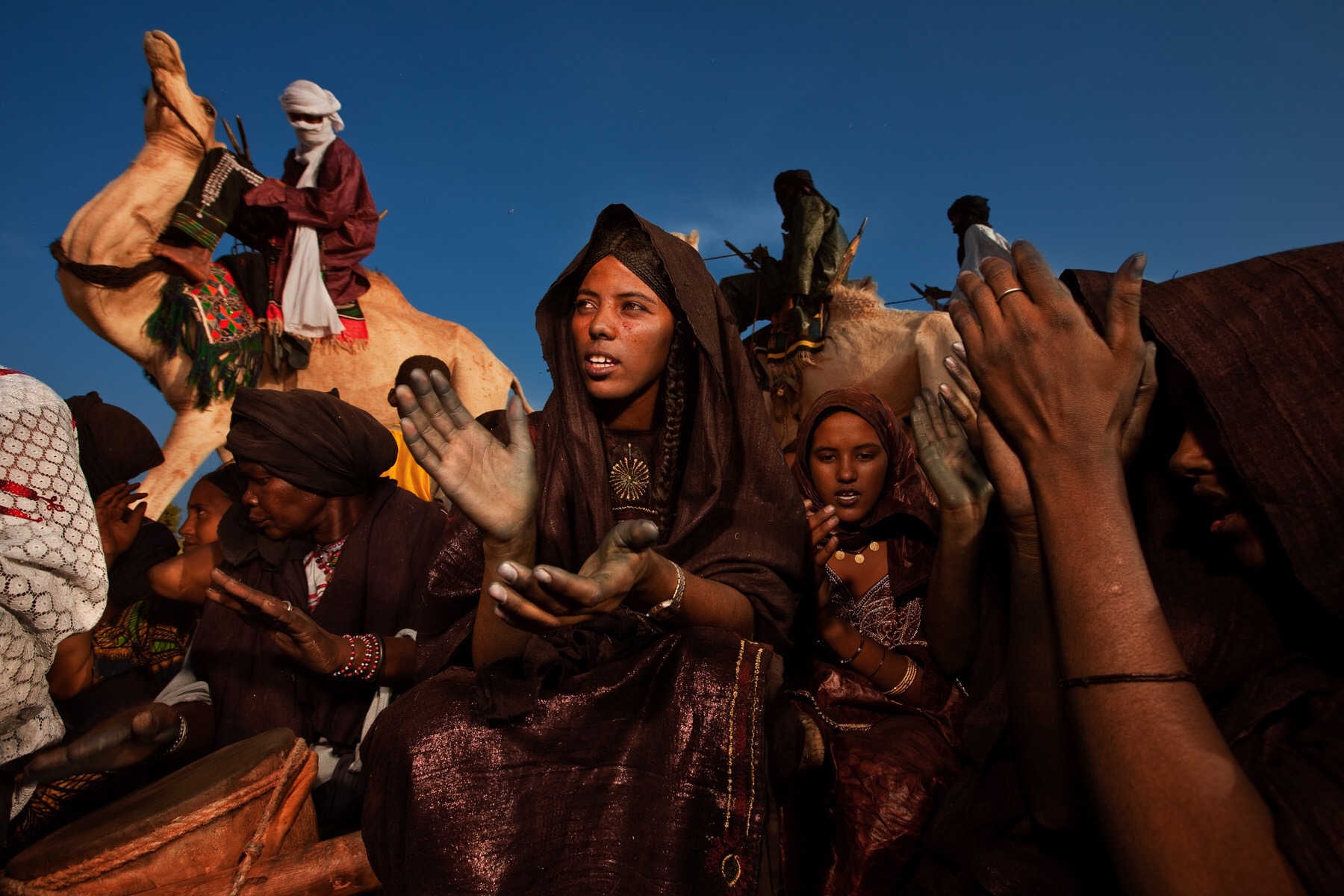Ténéré daféo nikchan .… yes, I’m back there again. The smells, the sounds, the wind. This collection of articles, written over a decade by a leading authority on the politics of Saharan nomads, was an absolute delight for me to read. It deals with the very people (not just the same ethnic group, but the particular segment of them, the kel-Aïr of Niger) who first awakened me to the nature of proto-democratic institutions. I read these articles with a tremendous wave of nostalgia. When as a naive toubab, I came to that part of Africa, many years ago, I had been led by the small amount of literature available on the subject to believe that the Tuareg represented a strictly stratified society, rigid and traditional — the last place to look for any kind of proto-democratic elements. But what I saw confused me, and ultimately enlightened me: a maze of conciliar institutions, both formal and informal, embodying all the elements from which democratic theory evolved in less exotic places. Good and bad things, but the same stew-pot of good and bad from which our best institutions ultimately evolved. I also saw that much that had been written or assumed was blind to this, shaped by presumptions that desert nomads where either chaotic beings without “complex” political institutions, or a rigid, changeless hierarchy in which discussion, representation, and equality played no part. My eyes told me that neither presumption was valid. It was this experience that got me interested in the issue of the universal roots of democratic practice, and triggered decades of reading. Sadly, when Steve Muhlberger and I began our first work on the subject, there was no published work on the Tuareg usable for our purpose. This book, had it existed then, would have been a centerpiece of our discussion.
The Tuareg, the “People of the Blue Vail” who loom in picturesque splendour in images of the Sahara, are, no matter how alien they may first appear to an outsider, human beings. They did not come from Mars. In the many years since I encountered them, they have drifted more and more into contact and involvement with the world as a whole. Tuareg musicians now cut albums with European rock stars, and film crews poke into the more accessible portions of their domain — both developments that I could not have imagined when I was there. But there is still little interest or knowledge of the Touareg as political beings, as people trying to solve the perennial problems of power, decision-making, authority, and inclusion that are critical to our survival. This book is a brilliant exception. It’s a great pity that it isn’t available in English. But I can predict one thing: some day, it will be available in Temazhek.
contains:
16616. (Hélène Claudot-Hawad) “Éperonner le monde” [preface]
16617. (Hélène Claudot-Hawad) Honneur et politique: Les choix stratégiques desTouareg pendant la . . . . . colonisation française [article]
16618. (Hélène Claudot-Hawad) Histoire d’une bévue coloniale: Le “sultanat” de l’Aïr [article]
16619. (Hélène Claudot-Hawad) La coutume absente ou les métamorphoses contemporaines du
. . . . . politique [article]
16620. (Hélène Claudot-Hawad) Ordre sacré et ordre politique: l’éxemple du pélerinage
. . . . . aux lieux saints chez les Touaregs de l’Aïr [article]
16621. (Hélène Claudot-Hawad) Personnages de l’entre-deux: l’initié, l’énad, l’aggag,
. . . . . le soufi [article]
16622. (Hélène Claudot-Hawad) Élite, honneur et sacrifice: La reconfiguration des
. . . . . savoirs et des pouvoirs nomades [article]
16623. (Hélène Claudot-Hawad) Identité et altérité d’un point de vue touareg [article]
16624. (Hélène Claudot-Hawad) Captif sauvage, esclavage enfant, affranchi cousin…
. . . . . La mobilité statutaire chez les Touaregs [article]
16625. (Hélène Claudot-Hawad) L’oubli du désert: Regard nomade sur la modernité territoriale
. . . . . [article]
Useful supplements to this book are: (Hélène Claudot-Hawad) Les Touaregs: Portrait en fragments; (Karl‑G. Prasse) The Tuaregs: The Blue People; and (Maguy Vautier & Jean Secchi) Femme Touarègue. Most books available on the Tuareg are in French, but the thin volume by Prasse, translated from Danish into English, is a good general introduction, and touches some of the points that Claudet-Hawad deals with.

0 Comments.